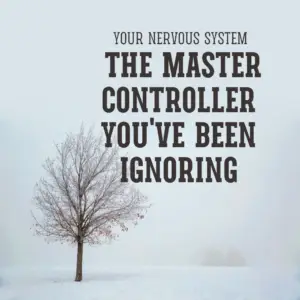Change your habits change your life
Integral Coaching for Long-Term Weight Loss and Overcoming Fatigue
I help busy professionals who struggle with long-term weight loss and fatigue.
Women can face various challenges when it comes to weight loss due to a combination of physiological, social, and psychological factors. Here are some reasons why women might struggle with weight loss:
1. **Hormonal Factors**: Women’s hormones fluctuate throughout their menstrual cycle, during pregnancy, during perimenopause, and menopause. These hormonal changes can affect metabolism, appetite, and fat storage, making weight loss more challenging.
2. **Metabolism Differences**: Generally, women have a lower basal metabolic rate (BMR) than men, which means they burn fewer calories at rest. This can make it harder for women to create the calorie deficit needed for weight loss.
3. **Body Composition**: Women tend to have higher body fat percentages than men, and fat distribution can differ (such as carrying more weight around the hips and thighs). This can affect how and where fat is lost during weight loss efforts.
4. **Social and Cultural Factors**: Women often face societal pressures regarding body image and weight. This can lead to unhealthy dieting behaviors or unrealistic expectations, which may sabotage weight loss efforts.
5. **Psychological Factors**: Emotional eating, stress, and mood swings can affect women’s ability to stick to a weight loss plan. Women may also use food for comfort or as a coping mechanism more frequently than men.
6. **Lifestyle Demands**: Women often juggle multiple roles and responsibilities, such as caregiving, work, and household management. Finding time for exercise and meal preparation can be challenging, leading to less consistency in weight loss efforts.
7. **Nutritional Needs**: Women’s nutritional requirements can change throughout their life stages (e.g., pregnancy, menopause), requiring adjustments in diet that may not always support weight loss.
8. **Medical Conditions**: Certain conditions more prevalent in women, such as polycystic ovary syndrome (PCOS) or thyroid disorders, can make weight loss more difficult due to hormonal imbalances or metabolic issues.
9. **Sleep Patterns**: Poor sleep quality or insufficient sleep, which women often experience due to hormonal changes or caregiving responsibilities, can affect metabolism and appetite regulation, hindering weight loss efforts.
10. **Genetic Factors**: Genetic predispositions can influence how efficiently women metabolize food and store fat, making some more prone to weight gain or difficulty losing weight.
Addressing these challenges often requires a personalized approach to weight loss that considers individual factors such as hormonal balance, lifestyle demands, and psychological well-being. It’s important for women to focus on sustainable, healthy habits rather than quick fixes or extreme measures.
Let a health and wellness coach provide personalized guidance and support to help you address underlying factors contributing to fatigue and develop strategies for boosting energy levels.
Personalized Assessment:
A health and wellness coach will start by conducting a comprehensive assessment of your current lifestyle, including sleep patterns, dietary habits, stress levels, physical activity, and overall health. This assessment helps identify potential areas for improvement and allows the coach to tailor their approach to meet your specific needs.
Goal Setting:
Based on the assessment, you and your coach will collaboratively establish realistic and achievable goals related to improving energy levels and overall well-being. These goals may include getting better quality sleep, making dietary changes, managing stress more effectively, incorporating regular physical activity, or addressing any underlying health issues.
Individualized Action Plan:
Once goals are established, your coach will work with you to develop a personalized action plan outlining specific steps and strategies to achieve your objectives. This plan may include recommendations for adjusting sleep habits, creating a balanced meal plan, implementing stress-management techniques, establishing an exercise routine, or exploring holistic approaches to wellness.
Ongoing Support and Accountability:
Throughout your journey, your health and wellness coach will provide ongoing support, encouragement, and accountability to help you stay motivated and on track toward reaching your goals. Regular check-ins, progress assessments, and adjustments to your action plan ensure that you remain focused and make steady progress toward improving your energy levels and overall health.
Education and Empowerment:
In addition to providing guidance and support, a health and wellness coach will empower you with knowledge and resources to make informed decisions about your health. Through education on topics such as nutrition, sleep hygiene, stress management, and self-care practices, you’ll gain a deeper understanding of how to optimize your energy levels and well-being for the long term.
Holistic Approach:
A health and wellness coach takes a holistic approach to health, considering the interconnectedness of various aspects of your life, including physical, mental, emotional, and spiritual well-being. By addressing the root causes of fatigue from a holistic perspective, you’ll experience comprehensive support that promotes balance and vitality in all areas of your life.
Certified Health and Wellness Coach
Embark on a journey of self-discovery and holistic well-being with Joanna Jendroska, a dynamic force in the realm of personal and professional development. Armed with a master's degree in the science of psychology and an MBA, Joanna brings a unique blend of scientific understanding and business acumen to the art of coaching.

Expertise in Habit Change and Energy Enhancement
Joanna specializes in guiding individuals through transformative habit changes. Whether it's breaking free from limiting beliefs or fostering positive daily routines, she empowers her clients to unleash their full potential. With a keen focus on improving energy levels, Joanna's coaching transcends conventional boundaries, helping clients achieve vitality that radiates from the inside out.



Holistic Approach to Healthy Living
As a certified Health and Wellness Coach, Joanna recognizes the intricate connection between mind, body, and spirit. Her coaching extends beyond traditional notions of health, encompassing areas such as healthy eating and movement. Through personalized strategies, she assists clients in crafting lifestyles that not only nourish the body but also invigorate the soul.

Mental Fitness and Self-Confidence Maven
Joanna is a champion of mental fitness, guiding individuals toward a resilient and positive mindset. Drawing on her background in psychology, she empowers clients to overcome challenges, build confidence, and cultivate mental clarity. Her coaching is a transformative journey that equips clients with the tools needed to conquer life's hurdles with grace.




Coaching Philosophy
Joanna's coaching philosophy is rooted in collaboration, compassion, and celebration. She creates a safe and non-judgmental space for clients to explore their goals, challenges, and aspirations. With a keen sense of accountability and unwavering support, Joanna becomes a trusted partner in her clients' journeys, celebrating every milestone achieved along the way.

Your Partner in Transformation
Joanna Jendroska is not just a coach; she's your partner in transformation. Through a blend of scientific knowledge, practical strategies, and genuine empathy, she guides individuals toward a life rich in energy, confidence, and meaningful connections. Take the first step toward a brighter, more vibrant future with Joanna as your dedicated coach and ally.

Latest News
How Genuine Are Your Relationships?
YOUR THERAPIST CAN’T FIX WHAT YOUR DIET IS BREAKING
"Investing in yourself is investing in your future"
Free Introductory Session
FAQ
Answer: A health coach is a trained, certified professional who supports and empowers individuals to make positive and sustainable changes to their health and well-being. They provide guidance, motivation, and personalized strategies to help clients reach their health goals.
Answer: Health coaching complements traditional medical advice by focusing on behavior change and lifestyle modifications. While doctors diagnose and treat medical conditions, health coaches provide support in implementing and sustaining healthier habits to prevent and manage health issues.
Answer: The sessions are on a weekly basis.
Answer: Health coaches recognize the integral connection between mental and physical well-being. Strategies for stress management, mindfulness, and emotional well-being are often incorporated into coaching sessions. I can provide tools and techniques to help you manage stress and improve overall mental wellness.
Answer: Challenges are a normal part of any health journey. As your health coach, I’m here to help you navigate obstacles, reassess goals if necessary, and provide ongoing support. We’ll work together to identify solutions and keep you on track towards long-term success.
Answer: To get started, simply reach out to schedule an initial consultation. During this session, we’ll discuss your health goals, assess your needs, and determine how we can work together to create a personalized plan for your well-being.
Answer: Life coaching is a collaborative and forward-focused process that helps individuals identify and achieve personal and professional goals. It provides support, encouragement, and guidance to help you overcome obstacles, clarify your vision, and create a more fulfilling life.
Answer: While therapy often focuses on past issues and emotional healing, life coaching is more present and future-oriented. Life coaches work with clients to set and achieve specific goals, improve their current situations, and enhance overall life satisfaction.
Answer: If you feel stuck, unfulfilled, or are facing challenges that you want to overcome but aren’t sure where to start, a life coach can be beneficial. Life coaching is for anyone looking to enhance their life, set and achieve meaningful goals, or navigate transitions with confidence.
Answer: Absolutely. Life coaches often specialize in career coaching, helping clients define their professional aspirations, navigate career changes, improve leadership skills, and achieve a better work-life balance. Career-related goals and challenges are common topics in life coaching.
Answer: It’s normal to feel uncertain, and that’s where a life coach can be especially helpful. Through targeted questioning and exercises, we can explore your values, strengths, and passions to help you gain clarity and identify meaningful goals.
Answer: Boosting confidence and self-esteem is often a key focus in life coaching. We’ll work together to identify limiting beliefs, challenge negative thought patterns, and develop strategies to build self-confidence, empowering you to take bold actions toward your goals.


